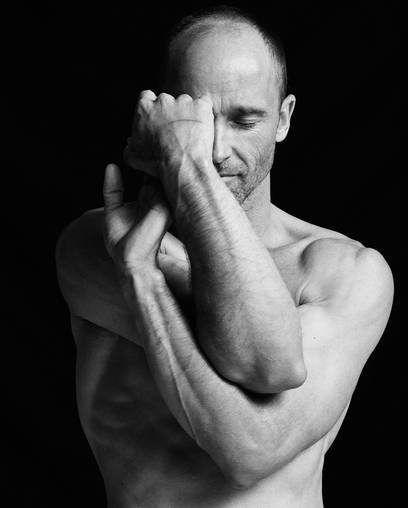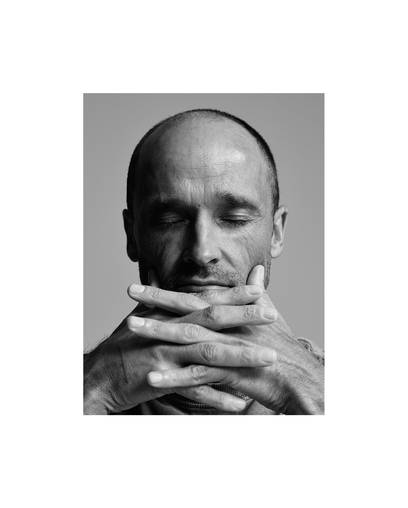Leading Vedic Meditation Teacher, Ayurvedic Health Coach and the Creator Director of SOMA, a world class retreat in Byron Bay, Gary Gorrow’s expertise goes beyond the bounds of mindfulness.
How did you discover Vedic Meditation and how has it expanded your life?
I initially began my journey exploring Eastern philosophy. I was always fascinated by the different world views that extolled the higher values of practical life but also incorporated the quest for ultimate reality. The understanding of how central the mind and consciousness was to living a meaningful life resonated deeply with me. Then the emphasis expanded from the intellectual to include the physical as I began practising Yoga. During this phase I was introduced to meditation, although I found the process unsatisfying for reasons I later discovered to be associated with a mediocre meditation method.
Later I found my way to Vedic Meditation, which was a complete game changer. It was an effortless technique that was profoundly effective. Vedic Meditation has a gentle way of releasing deeply accumulated stresses from the system, and with that, it started to unfold my consciousness potential. Immediately I noticed monumental shifts in how I was feeling, thinking and approaching everyday life. Since that initial phase, the practice has continued to enrich all aspects of my life. Our body, mind and nervous system and outer life are intrinsically linked. Inner changes have a way of rippling out into our outer world.
A state in which the physical body is deeply rested, the breath is barely moving (and often completely suspended). Where the mind has melted into the vastness beyond thinking, where time, space, mind and all-worldly concerns have dissolved.
"Vedic Meditation has a gentle way of releasing deeply accumulated stresses from the system, and with that, it started to unfold my consciousness potential"
What does modern science tell us about meditation and mindfulness and where do you see it expanding in the future?
The science is supporting that the development of the mind and brain is dramatically enhanced through the practices of mindfulness and meditation. These benefits are not simply limited to our cognitive functions but extend to include our physical and emotional health. More so, I believe meditation and mindfulness will become increasingly utilised by individuals and teams wishing to uplevel their inner-game. Professional athletes understand the central role mindset plays in performance. The emphasis in sports has always been in the physical metrics, but I see a revolution will take place where mind training will become as important as physical conditioning.
Humans once lived in predatory environments where it was important to be on guard to potential threats. As such, nature endowed us with the ability to go into fight or flight where we could have the energy and resources immediately available to escape danger or defend ourselves - to get the food, or not become the food. Today that response still exists very much in our DNA, but the problem is we tend to evoke that response in non-life threatening situations, such as when we’re running late, can't find our keys, or someone has offended us. None of these warrant a full-blown stress response, but that is how we have conditioned ourselves. The bears that chase us now are a burgeoning inbox, an annoying boss or a mortgage.
Stress is primarily born of how we interpret a situation, rather than the situation itself. When we overreact or maladapt we unfortunately set up the conditions in the system where it becomes habituated to responding in that way. Stress becomes the baseline automatic response.
Meditation is a way of rehabilitating the system and diffusing the fight or flight tendency. It also provides deep rejuvenating rest to the body, mind and nervous system. The meditative state is a unique neurophysiological state that creates new pathways within the brain. Whatever we expose our consciousness to, the brain shapes itself accordingly. It is a magical structure. Novel experiences and transcending through practices like Vedic Meditation awaken untapped regions of the brain creating a state of coherence within the brain. With consistent exposure to this state, the neural architecture is reshaped in a more positive way. Mind-brain enhancement equates to life enhancement.
How does practising regular meditation reverse the biological ageing process of the both the body and the brain?
Stress is known to accelerate the ageing process. Meditation brings such a profound level of rest to the mind and body that has been shown to dissolve stress and promote deep healing and rejuvenation to take place. There are some incredible studies that have been done on the telomeres. Telomeres are the specific DNA structures or caps found at both ends of the chromosomes. They play a central role in cell fate and ageing. Stress and poor lifestyle factors have been shown to degrade the telomeres wearing them down. Meditation however, is shown to increase the length and thickness of the telomeres.


“A daily shower ritual is the most sustainable and easy way to add lymphatic work Ayurveda has made its way into all facets of my life, it tends to do that given it's such a practical living science. Some of the ways I incorporate it is with my daily routine - such as waking early, scraping my tongue, drinking a cleansing drink, performing self-oil-massage, exercise, yoga, pranayama and meditation. The other big aspect is diet, but more so in the nurture I extend to my 'agni' - digestive fire. Quality food is important, but according to Ayurveda, what is more important is how we digest what we eat. Agni is the most vital player with regards to health and longevity.
What is your philosophy of life?
That's a big question. If I were to attempt to express it in simple terms it would be that there is a profound and sacred power that exists at the source of all things. That intelligence silently upholds and orchestrates the workings of our world. We are here to align with that energy, to express our true potential, to enjoy the ride, to learn, evolve and to love and support others. How we do that is unique to us all, but I believe we have an inner guiding force that is our best means to navigate this thing called ‘human life’. The trick is tapping into that inner wisdom.
What has been your biggest life lesson?
There have been so many big lessons – and I might add they seem to be endless in their delivery. So, I guess that is one of the lessons, change is constant, life is ever evolving and we are part of that dynamic. Our life is about choice. We can choose to relish the journey or we can choose something else.



